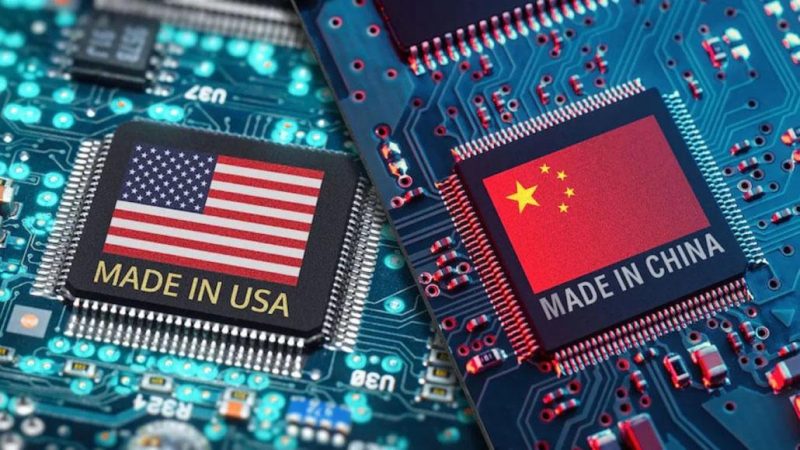
The United States and China, two of the largest economies in the world, continue to compete in both national security and economic output. The impacts of this rivalry can be seen across industries, including a focus on advanced technologies and renewable energies. While each nation seeks complete economic independence and national autonomy from the other, the mutually reliant markets established make a total separation more difficult than desired.
The most prominent world market continues to be the field of technology, as it is not only one of the most significant economic drivers but also plays a crucial role in the everchanging landscape of national security. Within the technology industry, the U.S. and China have placed a focus on controlling the development of high-performance semiconductors and the manufacturing equipment necessary to produce these chips. Many technology and manufacturing companies in China and the U.S. have established business operations that are reliant on the ability to ship goods and equipment between both nations. In light of recent regulations by the U.S. Bureau of Industry and Security (“BIS”), Kearney’s 2023 Reshoring Index indicated that over 95% of U.S. CEOs plan to reshore their production from China, including companies such as Google, Intel, Amazon, and Microsoft.1 A key example comes from Massachusetts-based semiconductor testing equipment company, Teradyne, who pulled about $1 billion worth of manufacturing equipment out of China following the October, 2022 restrictions.[1]
For most of the semiconductor and advanced technology companies, the move out of China was not much of a choice. The new U.S. chip regulations have severely limited the capacity and type of semiconductors or manufacturing equipment that is allowed to be shipped into China.[2] To counterbalance the impacts of the new controls, some companies have attempted to produce goods in China that would only be sold to the domestic Chinese market. For example, Nvidia has started accepting pre-orders for a new China-specific artificial intelligence (“AI”) chip, the H20, hoping to keep stride with Chinese Technology leader, Huawei.[3] Prior to the recent U.S. regulations, Nvidia had more than a 90% share of China’s AI chip market, but now navigating the restrictions will require their best effort to even compete. It has become nearly impossible to compete with the Chinese companies in China, as they receive subsidies on electricity, raw materials, land and are eligible for contracts from the Chinese government. Even if companies are not bringing production back into the United States, many are moving their manufacturing hubs out of China and into allied nations such as India, Vietnam, or Thailand.
The U.S. is also heavily reliant on China for key components of the solar and EV product market. According to a report by the International Energy Agency (“IEA”), China is responsible for 80% of solar cells and assembled panels. In the EV market alone, China accounts for 60% of global battery-grade lithium produced.[4] If the tensions between China and the U.S. continue to develop as they have, both U.S. users and manufacturers of clean energy products, like solar or EV, are potentially going to require new suppliers or adjusted operational strategies.
The trade tensions between the U.S. and China do not only stem from economic concerns, but equally from perceived threats to national security. The growing rivalry has placed new microscope on any U.S. company who has ties to China or Chinese business partners. One of the largest examples of this comes from a U.S. legacy automaker, Ford Motor Company. Ford is currently under an ongoing investigation due to their partnership with China-based Electronic Vehicle (“EV”) battery maker, Contemporary Amperex Technology Co. Limited (“CATL”) to build a new Michigan Factory.5 Wisconsin Congressman, and Chairman of the House Select Committee on the Chinese Communist Party, Mike Gallagher, has noted that Ford planned to use technology and software from four Chinese companies who also supply similar technology to the Chinese military and North Korea. On the matter, Chairman Gallagher said, “It is indefensible for Ford to use the same cloud integration and data provider that is linked to North Korean Ministry of Foreign Affairs sanctions evasion activity.”5
The repercussions of these actions by both the U.S. and China can be felt across all markets as the international supply chain landscape is constantly changing. China saw a drastic decrease in export activity to the U.S. across all industries in 2023. As both countries continue their attempts to dominate particular industries and disentangle themselves from each other, companies are left to regularly adjust their own strategies and supply chains.
Create networking & educational opportunities on a wide variety of international topics.
Discover MITA events